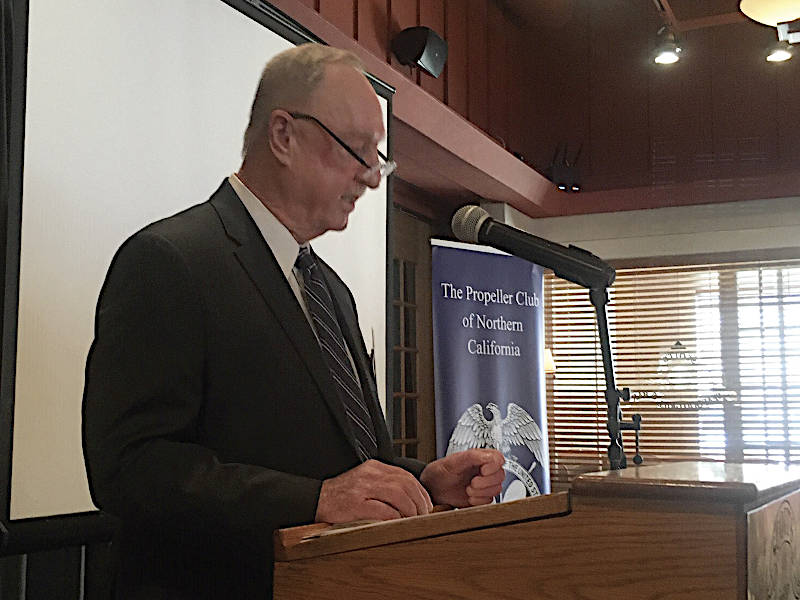Jim McKenna, president and CEO Pacific Maritime Association (PMA), is hopeful that contract negotiations set to begin with the International Longshore and Warehouse Union (ILWU) will avoid a work stoppage.
Mckenna was speaking at the Port of Los Angeles monthly media briefing on May 6th.
The maritime executive reported that the PMA commissioned study released on May 2 found: “Automation is offering early proof of a win-win strategy: work gains for ILWU members and productivity and efficiency gains that will drive up growth, drive down cargo-handling costs, and help restore the San Pedro Bay ports’ competitive advantage … failing to adapt threatens to drive cargo to other ports, with a cascading loss of jobs on the docks and throughout the regional economy.” Another finding is that container throughput at two San Pedro Bay automated terminals is 44 % higher per acre compared to the terminals with conventional operations and that automated machinery can stack containers higher, closer together, and more efficiently for transfer to trucks or trains. Finally, the report found that did not result in a job loss: “The gains in automation output in Los Angeles and Long Beach mean that contrary to fears of job losses, automation has increased, not reduced, ILWU jobs and work opportunities, including training and upskilling.”

Study Draws Criticism From ILWU
The study’s findings drew a critical reaction from an ILWU spokesman. “It’s apparent that the report is a self-serving document by one party to a labor contract, and even worse is an insult to all workers who have seen their jobs outsourced to machines,” wrote Frank Ponce De Leon, ILWU Coast Committeeman. Terminal automation is expected to be a contentious issue in contract negotiations scheduled to begin on May 12.
A national audience will be watching and hoping that a work stoppage is avoided, McKenna said: “Obviously we’re going to have some challenging issues in front of us. Hours and wages and working conditions are going to be front and center. As far as anything else … that’s for the [negotiating] table. Right before a mid-term election there’s a lot of focus by everybody and we all realize that. We have to get to the table and get an agreement without any further disruption.”
McKenna: “I don’t think either of us walks in and says were going to have a problem. We both committed to getting to the table, getting a contract and doing so without any disruption to the supply chain ...”
However, Mckenna noted that contract negotiations have had unexpected endings: “In 2008 we did the automation agreement. It was a big deal…One of those issues that you thought was going to be tough to overcome. We actually settled that contract three weeks after it expired without disruption. In 2014, we had no real major issues on the table and it took us eight months after expiration with some slowdowns.”

